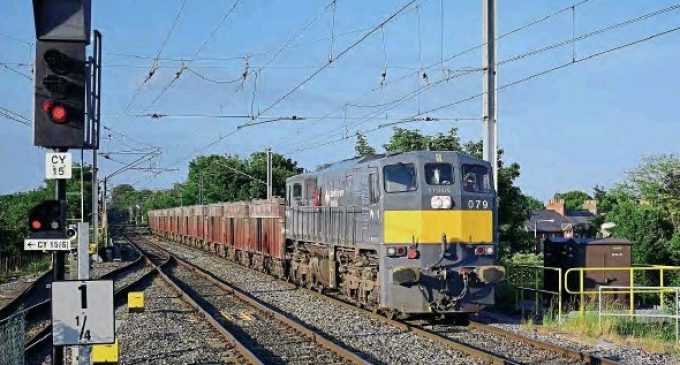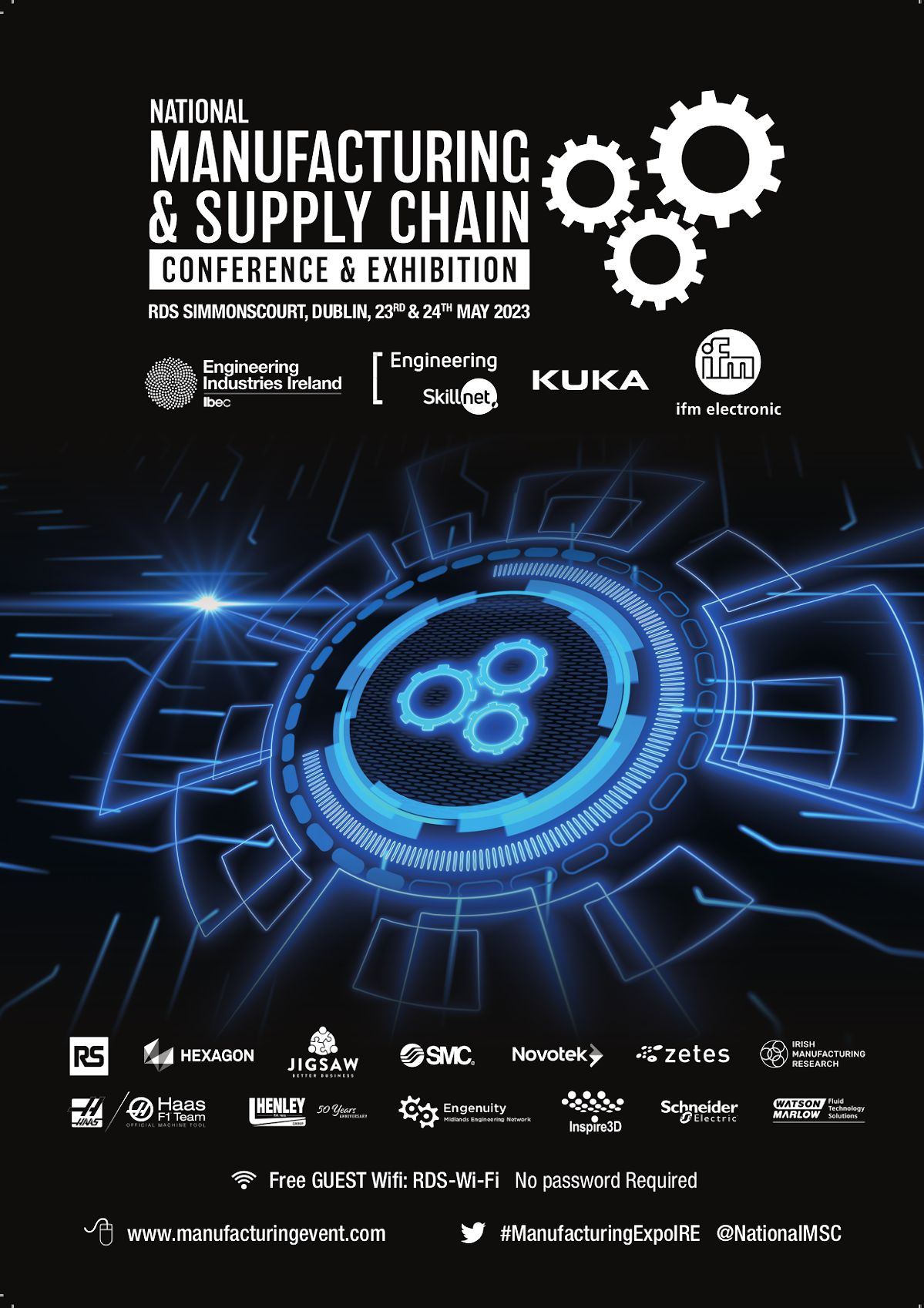Rail Freight 2040 Strategy targets five-fold increase in freight services on Ireland’s rail network

Iarnród Éireann has launch its new Rail Freight 2040 Strategy. Prepared during the European Commission’s European Year of Rail 2021, which targets rail freight development across the EU amongst its key goals, Iarnród Éireann’s Rail Freight 2040 Strategy is an ambitious plan, which aims to achieve:
- A five-fold increase in the number of rail freight services, to include over 100 new weekly services across the rail network
- A resulting reduction of 25,000 tonnes of CO2 emissions annually, with rail freight emissions per unit as little as 16% of HGV emissions
- Avoiding the requirement for 140,000 HGV journeys on our roads annually, as well as helping the supply chain which is facing a shortage of HGV drivers
Rail Freight 2040 was prepared in consultation with stakeholders, and operations and case studies across Europe were examined. The strategy aligns with Project Ireland 2040, the Climate Action Plan, as well as the European Union’s Sustainable and Smart Mobility Strategy and EU Green Deal, and supports the national decarbonisation goal of a 51% reduction in emissions by 2030.
The Strategy outlines twenty-five initiatives and a cumulative investment of approximately €500 million, within five strategic pillars, which are:
- Enhancing connections with sea ports: central to Rail Freight 2040 are initiatives to have all Tier 1 Ports connected to the rail network. This degree of connectivity will establish an expansive rail freight network which provides the options and resilience required by modern supply chains and potential freight customers. Enhancing existing operations to Waterford and Dublin Ports, and re-establishing rail connections to Foynes Port in Limerick and Marino Point in Cork are envisaged.
- Developing a network of intermodal terminals: Additional infrastructure is required to prove a network of facilities and a freight service offering as a viable alternative to road for existing and new customers. An expansive network of inland rail freight terminals is proposed, establishing rail freight in each of the regions.
- Addressing rolling stock requirements: Investment in new wagon fleets will ensure services can benefit from operational efficiencies. Modern intermodal and bulk wagons can reduce impacts on track infrastructure, and facilitate higher speeds and longer trains. In addition, bi-mode locomotives would allow for further decarbonisation of freight flows.
- Network developments: the connection of industrial sites directly to the rail network; development of additional passing loops and double-tracking on current single-track sections of the network; and dedicated freight paths to provide competitive journey times and reliability will be developed.
- Policy initiatives: Working with national, regional and European stakeholders, Iarnród Éireann will work to ensure a policy framework is in place to support a more favourable environment for rail freight, in line with European norms.
Minister of State at the Department of Transport Hildegarde Naughton TD, with special responsibility for International Transport and Logistics, said: “This five-fold increase in the number of rail freight services will enhance our regional and international connectivity and reduce our CO2 emissions by 25,000 tonnes. This is a significant contribution to our climate objectives as we look to drastically reduce our transport emissions which currently account for 18% of Ireland’s carbon emissions.
This commercial freight strategy is complemented from an all-island strategic perspective by the all-island Strategic Rail Review, which is currently out for public consultation. The review recognises the important role that rail can play in our quality of life, economic activity and the environment. It will shape and develop the rail network with further opportunities to grow rail freight operations into the future.”
Jim Meade, Chief Executive of Iarnród Éireann, said: “We are ambitious for our rail freight services to become a key part of Ireland’s freight sector. Our 2040 strategy sets out a clear path to make this happen. We look forward to working with stakeholders from government to industry to continuously develop our network and services to provide a comprehensive rail freight offering. Rail freight’s time is now – we need to decarbonise, we need to address congestion and we need to provide alternatives to industry.”




















